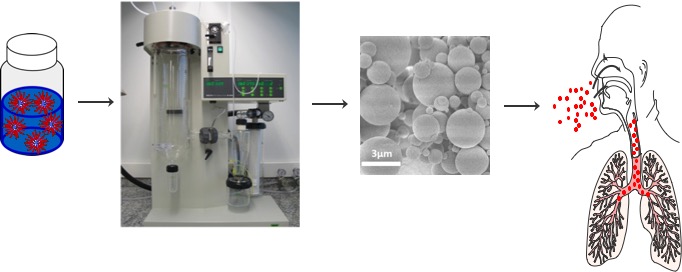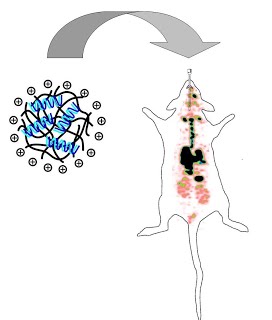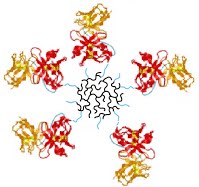Research
The Merkel lab is interested in smart drug delivery systems. Our research on drug and RNA delivery is subdivided into the following topics:
Synthetic nano-sized delivery systems for RNA and CRISPR/Cas
Delivery is currently the greatest hurdle for the therapeutic use of nucleic acids such as siRNA, mRNA or CRISPR plasmids and RNPs. Therefore, we develop novel delivery systems based on biodegradable and amphiphilic polymers supported by molecular dynamics simulations, Design-of-Experiment, and machine learning and prepare nanoparticles by precision microfluidic assembly. We optimize their characteristics such as reproducibility of formulation, size, RNA protection and release, toxicity, immunogenicity and bioactivity for better in vivo results and develop clinically relevant dosage forms such as powders for inhalation with increased shelf-live prepared by spray drying.

Local administration routes
Due to rapid degradation by nucleases and fast excretion upon systemic injection, local administration of siRNA offers more clinical relevance. By local administration, both the dose and systemic side effects can be decreased. We are mostly interested in pulmonary administration for local effects and nasal administration for subsequent delivery to the brain via the olfactory bulb. We also investigate in situ forming hydrogels as local depot formulations.

Novel safe and target-specific nanomedicines
To reach specific cell populations within the lung or to deliver nucleic acids into the brain, we attach targeting ligands to the surface of the delivery systems. These targeting moieties have a strong affinity with the target cells and tissues. Due to this high affinity, these delivery systems are also investigated for their ability to detect distant targets, such mobile immune cells, circulating tumor cells or metastases.

Therapeutic approaches
Our goal is to develop novel nucleic acid-based nanomedicines for therapy of a range of diseases. We mainly focus on the treatment of asthma and lung cancer with a specific focus on EGFR and Kras mutations in lung cancer and their repair for chemosensitization. Since early 2020, we are investigating pulmonary siRNA delivery against SARS-CoV-2. Additionally, we are also interested in chemosensitization in ovarian cancer and breast cancer and investigate epigenetic mutations.